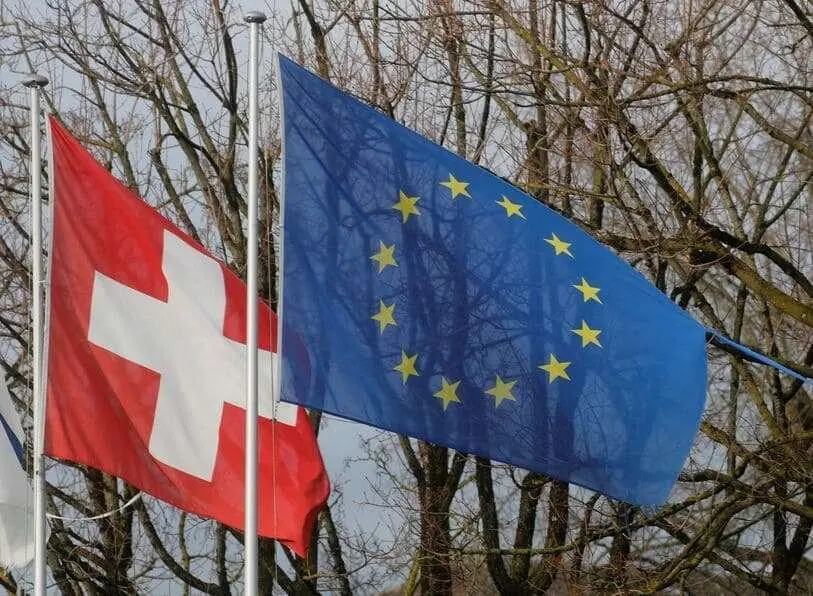Switzerland's farewell to the EU in the Helvetic way

Switzerland begins June by losing one of the many privileges it enjoyed in its relationship with the European Union: its sought-after medical equipment will have to go through the same customs procedures and bureaucratic authorisations as if it were a third country. These new obstacles will cause an annual loss of some 80 million francs for a sector that exports 46% of its production to the EU, but above all it will introduce a new feeling of isolation that could spread to many other sectors and become chronic.
European public opinion has barely had time to realise that, far from intensifying its bilateral relationship and further integration, Switzerland has decided to slow down this process and even slam the door. Indeed, on 26 May, seven years of negotiations between Brussels and Bern to conclude a framework agreement that would consolidate and deepen a relationship that has lasted more than half a century came to a cold farewell. This is the time that has elapsed since the Free Trade Agreement, reinforced in 2001 with bilateral EU-Switzerland agreements, which are now considered obsolete by both sides, but especially by Brussels.
The failed framework agreement was also intended to bring together the more than 120 agreements that govern relations in numerous sectors between the two sides, but above all to allow the highly dynamic EU legislation to apply automatically to the Swiss Confederation as well, from the common agricultural policy to the requirements and conditions of trade in medical equipment, to the present and future regulations of the financial system or labour rights. And, of course, with the European Court of Justice as the final arbiter of possible disputes.
In reality, the draft of the failed framework agreement had been finalised since 2018, pending ratification by the EU and Switzerland itself. And it was precisely in the Swiss parliament that intense debates took place that called into question the relevance of approving the draft. In the end, three "substantial differences" were cited by Berne as the reasons for the final cancellation of the negotiations: wage protection, rules on state aid and access for EU citizens to Swiss social security benefits.
The conservatives of the Centre Democratic Union (UDC) have been the most belligerent, and consequently the most celebratory, describing the failure as a "victory for Swiss sovereignty and direct democracy". This is not the opinion of the other main parties in the parliamentary arc, which on the whole believe that the country will be plunged into the uncertainty of progressive isolation, which will probably not be as splendid as the SVP predicts.
Trade unions, particularly concerned about protecting high domestic wages from what they see as inevitable competition from EU workers in the short term, are also satisfied. Trade unions and a section of the Swiss Federal Council (government) have been completely intransigent in not accepting the EU's demands for equal rights (social security) for its workers with their own Swiss counterparts. In the opinion of the Swiss foreign minister, Ignazio Cassis, "this would have meant a paradigm shift in Swiss migration policy".
The Swiss government therefore advocates securing bilateral cooperation by continuing with existing agreements, and proposes "initiating a political dialogue with the EU on further cooperation". Brussels, on the other hand, does not see the usefulness of a new dialogue after the previous one has been broken off. For the EU 27, Switzerland enjoys an exceptional relationship that allows it the privilege of exporting to the European market without any controls or tariffs. But by refusing to align itself with the "modernisation" of the EU's own regulations, the old EU-Switzerland agreements will irretrievably lapse.
Privileged Switzerland is geographically located in the very heart of the EU, a situation that a priori does not allow it to retreat into complete isolation. In fact, the country is more than 50% dependent on electricity supplies from the surrounding EU countries. Rejecting progressive EU legislation in this respect means that this market is no longer privileged, as in many other sectors.
The coincidence of the stormy Brexit process during the now defunct negotiations may well have influenced the mood of at least part of the Swiss political spectrum, which wanted to imitate the British claim to choose the advantages of a privileged relationship with the EU, especially unrestricted access to its internal market, while rejecting the correspondingly burdensome common duties and obligations.
The impacts of this break-up will have to be observed, at least in the short term. The common interests are enormous, as evidenced by the fact that 52% of Swiss exports and investments go to the EU, which in turn accounts for 70% of Swiss imports. The free movement of people, which the populist right wanted to abolish by referendum in 2020 but failed, is still in place: almost half a million Swiss work in the EU while 1.4 million EU citizens live and work in Switzerland and another 315,000 cross the border every day to work in Switzerland and return to sleep in France, Germany, Italy or Austria. Too many intertwined interests to marginalise with the stroke of a pen.

